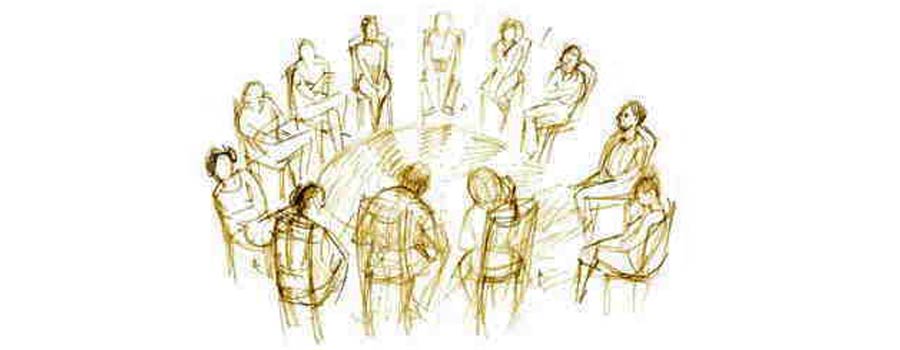Towards a multicultural Bergamo is a network of associations and groups that from 2004 to 2010 organized public meetings in which men and women, locals and migrants, relate experiences and emotions in the belief that integration occurs through the exchange, listening and mutual understanding. The research involved about 300 people in the entire project.
Integration implies a mutual process of change that interweaves old and new values, habits, rules, norms and languages. There emerges something new that does not belong to the culture of origin, or to that of the host: a new and unique mixture. In a real process of integration the change involves the host society: the process is interactive and mutual and occurs in the encounter between local and migrant. Not everything is mixture: we also valorize and maintain differences.
A society with an integrated immigrant population is no longer the same. In Italy we have not yet reached this stage (Edelstein, 2004).
Some scholars are opposed to the concept of integration because, according to them, it is confused with assimilation. When integration is perceived as a linear process of change by the immigrant only, then the vision is assimilationist. In Italy, the concept of integration has gained a generally positive meaning, despite being often used incorrectly.
To start working on integration, we begun a research-action based on the premise above: change and the process of integration are developed mainly through meeting, exchanging, listening and mutual understanding.
Building a local network of associations and organizations that deal with the immigration issue, our vision is one of a system whose components can be variously connected together to form an autopoietic structure. The network is a set of relationships that connect nodes, and in which the increase of complexity involves more and smaller nodes and increasingly numerous relations. This network, taken as a system, proves to have a behavior similar to that of a living being in a context: the development, adaptation, reproduction.
The network, called "Towards a Multicultural Bergamo?" Until 2008 it was made up of:
- Associazione Shinui - Consulting Center on Relationship
- Association Eritreans Bergamo,
- Cultural Centre Pegasos,
- Convention of Women (a public organism that belongs to the Municipality),
- Cooperative “Interculturando”,
- International Women of Bergamo (“Donne Internazionali di Bergamo” - DIB),
- Enaip Lombardy - Bergamo Center Services Training
- Serughetti Foundation - Research and Documentation Centre “La Porta”.
Coordinator of the entire project, the network and the action research was Dr Cecilia Edelstein, chairman of Shinui.
METHODOLOGY
We launched a series of public meetings in small groups managed distinguished by gender and conducted by experts who follow the narrative approach. In these meetings we discussed the mutual perception that migrants and locals have of each other, the daily experiences, prejudices, emotions. We have entitled them: "Towards a multiethnic Bergamo? Locals and migrants encounter, men and women narrate."
The intention was to weave these meetings with other cultural events in order to provide at grassroots level activities that could start the integration process. Based on the assumptions given above on the integration, content that emerged within groups were analyzed, they formulated hypotheses which, in turn, produced information. From time to time it was decided how to proceed: this is the process of action research. The workshops followed the narrative method, they were inspired by the group work model developed by Edelstein in their action research described above and the groups were coordinated by experts. The contents, verbalized more extensively, comply with the standards of privacy. After the first 5 meetings of the first phase, we stopped to carry out the analysis of the conversation with the aim of:
- seeing what emerges in groups;
- evaluating the effectiveness of interventions and the model proposed so far on the basis of our assumptions on the issue of integration.
CONTENTS
- October 2, 2004
"The mutual perception of the migrant and local". Explanatory Memorandum and the work report of the meeting laboratories: because we think it might be a useful tool of knowledge and reflection?
- February 19, 2005
"The fear in the encounter with diversity".
- Theater Performance June 5, 2005
SCIROCCO: Ballad travel.
Production and Scarlattine Teatro Quartet Project - the brainchild of Michele Losi.
- December 3, 2005
"The work on."
- March 18, 2006
"The ties, relations, social relations".
- May 13, 2006
"The House".
- March 31, 2007
Meeting on the theme of ' "live" to tell stories of ties, people and homes.
In autumn 2007, the network began to organize meetings between locals and migrants.
The Centro San Lazzaro di Bergamo, which includes the Latin American community, was willing to accommodate us. 5 meetings were held between the end of 2007 and the beginning of 2008 on Sunday. They were conducted with great success and very satisfactory results.
We also conducted workshops and group meetings with local and foreign mothers of the nursery school of Monterosso (Bergamo) on the following themes: motherhood, raising children, relations with the school. The result in this situation was much more the expectations.
COSTS
Participation in the Network initiatives has always been free. From 2004 to 2008 the work of network members has been offered as a volunteer. Any costs being borne by the individual companies (associations and organizations). From 2008 to 2010, with the start of the research action from the association with the San Lazzaro Community, the project has received private funding supported by dr. Giorgio Bodo.
BIBLIOGRAPHY
Edelstein, C. (2004).Il counseling interculturale - un'introduzione . Il Counselor, 1 , 13 - 19.
Edelstein, C. (2006). L'integrazione: un approccio dal basso. M@gm@ - Rivista Elettronica di Scienze Umane e Sociali - Osservatorio di Processi Comunicativi, 4(2)



